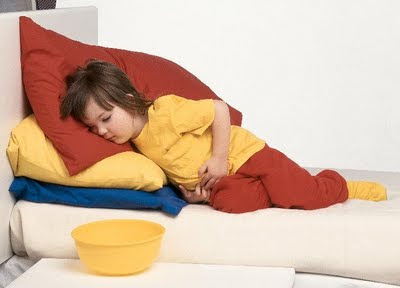Therapy helps relieve stomach aches for some kids
Talk therapy may help some children with frequent and unexplained stomach pain, a new study suggests.
More than half of kids and teenagers who met weekly with a therapist had their stomach aches lessen or go away within a year. A similar proportion improved after regular appointments with a pediatrician, researchers found.
Between eight and 25 percent of all youth have chronic stomach pain, studies suggest. When there’s no clear medical cause for the pain - such as inflammatory bowel disease or celiac disease - it’s known as functional abdominal pain.
A few trials have found cognitive behavior therapy, or CBT, may be useful in those cases.
“There’s an accumulating body of evidence to suggest that it is effective,” Paul Robins, a pediatric psychologist from The Children’s Hospital of Philadelphia, said.
“What we’re teaching kids are techniques that help regulate affect and help regulate stress reactions and help them cope with pain, as well as help them return to their normal activities,” he told Reuters Health.
 Robins has studied chronic stomach pain but was not involved in the new report.
Robins has studied chronic stomach pain but was not involved in the new report.
The Dutch trial included 104 children age seven to 18 who’d had chronic stomach aches for about three years, on average.
Marc Benninga from Emma Children’s Hospital Academic Medical Center in Amsterdam and his colleagues randomly assigned half of them to attend six weekly CBT sessions.
The sessions were tailored to the needs of each child. They included relaxation exercises and strategies to distract kids from stomach pain or change the way they thought about their pain.
The rest of the children met six times with a pediatrician or pediatric gastroenterologist. Doctors talked with children and their parents about diet, gave them advice to continue with school and everyday activities and prescribed medication if needed.
 Pain and related symptoms improved among children in both groups, but there was no difference between treatments, the researchers found.
Pain and related symptoms improved among children in both groups, but there was no difference between treatments, the researchers found.
One year after treatment ended, 60 percent of kids in the CBT group had fewer or no stomach aches, compared to 56 percent of those who had seen a doctor.
That success rate for CBT is a bit lower than what other studies have found, Benninga noted.
Because the study didn’t include any kids who were not treated, it’s not clear how many would have gotten better on their own, without seeing a doctor or therapist regularly.
The researchers had expected talk therapy to be more effective than standard doctor visits.
Robins said it’s possible some of the benefit for both groups stemmed from children’s relationship with a healthcare provider, regardless of the specific treatment. Or, he said, pediatricians may have been using some CBT elements themselves to help children cope with pain.
Therapy has the advantage of being more feasible and less expensive than regular meetings with a pediatrician or specialist, the researchers wrote Monday in Pediatrics.
The therapists in this study were either students who were getting their Master’s degree in psychology or were psychologists with a Master’s degree.
Robins and Benninga agreed talk therapy is worth looking into for parents of children with chronic stomach pain, especially because it is widely available.
“I think it’s really worthwhile to try a treatment of CBT, because it has no adverse effects and I think can only benefit the parents and the children to get more insight into what abdominal pain is and how they can handle the complaints,” Benninga told Reuters Health.
SOURCE: Pediatrics, online October 14, 2013